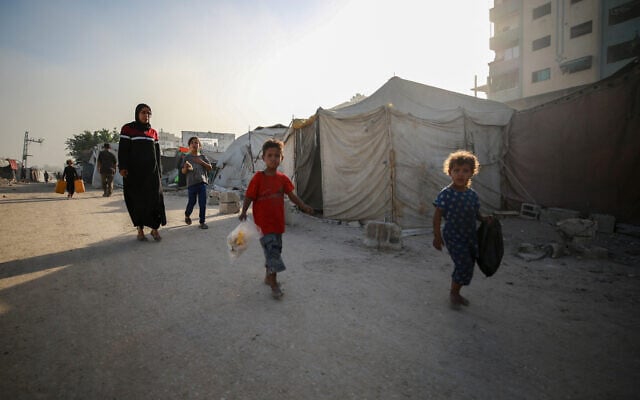


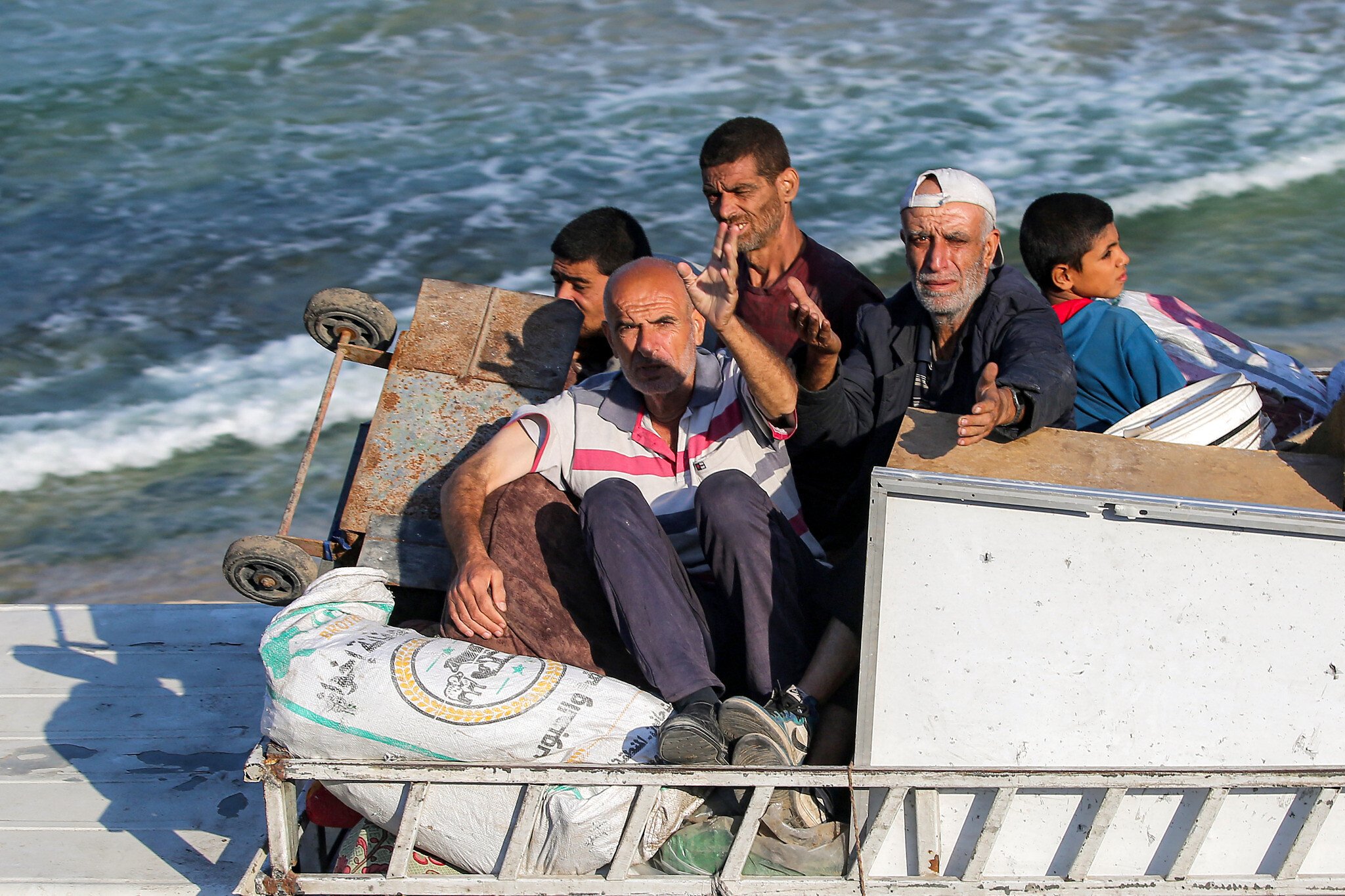
Israel will soon slow or halt humanitarian aid into parts of northern Gaza, an Israeli official said Saturday, ahead of the coming expansion of its offensive in Gaza City in an attempt to cripple Hamas.
The official, who spoke on condition of anonymity because they were not authorized to speak to the media, told The Associated Press that Israel will stop airdrops over Gaza City in the coming days and reduce the arrival of aid trucks into the northern part of the Strip as it prepares to encourage the evacuation of hundreds of thousands of residents south.
Meanwhile, seven Israeli soldiers were wounded over the weekend when an armored personnel carrier they were traveling in went over an explosive device in north Gaza City’s Zeitoun neighborhood, military officials said Saturday. One soldier was in moderate condition, and six others were lightly wounded in the incident that occurred overnight Friday-Saturday.
Israel on Friday declared Gaza City a combat zone, calling it a Hamas stronghold and saying that a network of tunnels remains in use despite several previous large-scale raids on the area throughout the nearly 23-month-long war.
Also on Friday, Israel said that its recently imposed “humanitarian pauses,” localized 10-hour halts in military activity to facilitate the distribution of humanitarian aid, would no longer apply to Gaza City.
The pauses came as part of a series of measures that Israel implemented last month amid surging food prices in Gaza and an international outcry over growing starvation. The measures also included the creation of new aid corridors and airdrop operations.
The shift comes weeks after Israel first announced plans to widen its offensive in the city, where some one million people are sheltering. In recent days, the military has ramped up strikes and operations on the city’s outskirts.
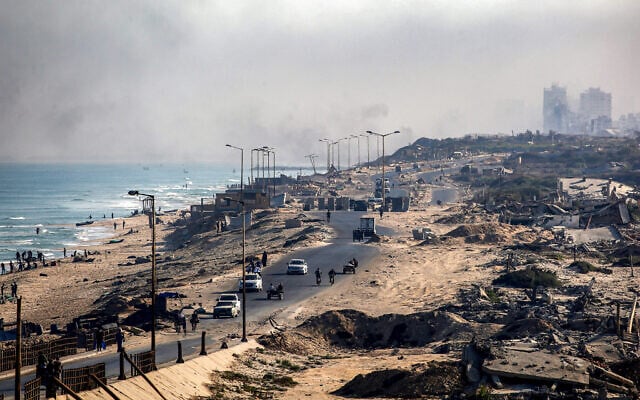
It was unclear when the pause in aid would take effect and when the airdrops would fully stop. There have been no airdrops for several days across Gaza, a break from the almost daily drops for the past several weeks.
The military did not respond to a request for comment about the airdrops or how it would provide aid to Palestinians as Israel ramps up its offensive.
On Friday, Israeli army spokesperson Avichay Adraee urged Palestinians to flee south, calling evacuation “inevitable,” but aid groups have warned that a large-scale evacuation of Gaza City would exacerbate the dire humanitarian crisis.
The Red Cross on Saturday said that any Israeli efforts to evacuate Gaza City would put hundreds of thousands at risk, calling the idea “unfeasible” and “incomprehensible.”
“It is impossible that a mass evacuation of Gaza City could ever be done in a way that is safe and dignified under the current conditions,” International Committee of the Red Cross President Mirjana Spoljaric said in a statement.
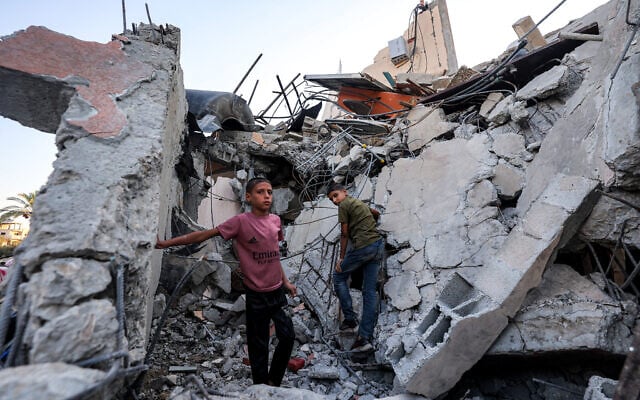
The dire state of shelter, healthcare and nutrition in Gaza meant evacuation was “not only unfeasible but incomprehensible under the present circumstances.”
While Israel has already issued evacuation warnings and told residents of Gaza City that the area is a “combat zone,” its security officials told Channel 12 on Saturday that the evacuation of the city was going much more slowly than anticipated.
Israel estimates that only some 10,000 people have evacuated to the south in the three weeks since Israel announced it would empty the city of its civilian population, an official said.
The plans to conquer Gaza City have drawn fierce opposition from hostages’ families who fear the planned operation will risk the lives of their loved ones, as well as an international outcry, with governments and humanitarian groups warning of potentially disastrous consequences for Gaza’s civilians.
The Hamas-run civil defense agency on Saturday reported intense Israeli strikes in Gaza City’s Sabra and Zeitoun districts, and an “escalation” in the Sheikh Radwan area north of the city center.
Abu Mohammed Kishko, a resident of the northern Zeitoun area, told AFP the bombardments the previous night had been “insane,” saying that “It didn’t stop for a second, and we didn’t sleep all night.”
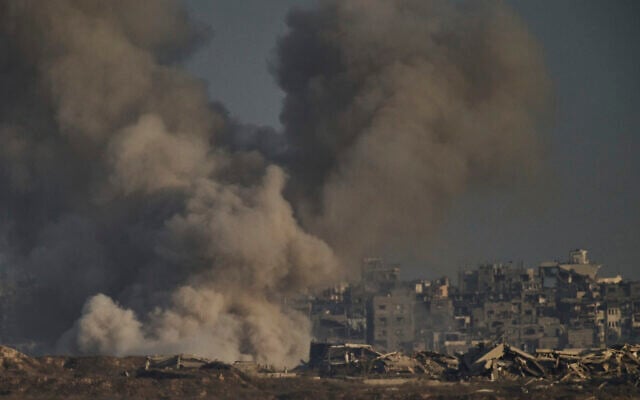
“We also couldn’t breathe properly because of the smoke bombs — we were suffocating,” he added.
Kishko explained that he, like many other residents, had not followed the Israeli evacuation orders because there was nowhere safe to go.
A journalist working for AFP on the northern edge of Gaza City reported he had been ordered to evacuate by the army, adding conditions had become increasingly difficult, with bombardments coming closer to his position and gunfire and explosions heard nearby.
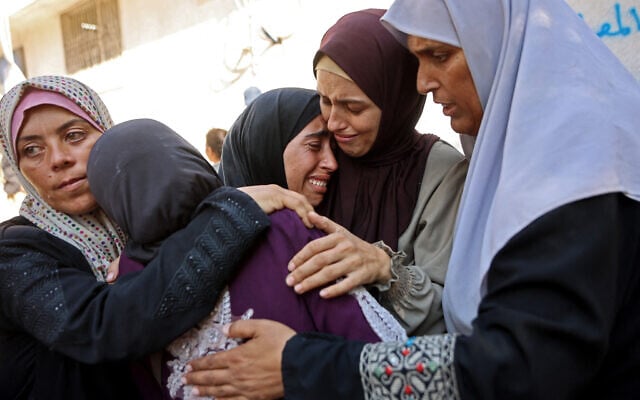
Sheikh Radwan resident Mariam Yassine said the non-stop shelling had kept her children up all night.
“My husband went a few days ago to find us a place [to relocate to], but he couldn’t find anything, and we don’t know what to do. We have no place to go,” the 38-year-old said. “We are living in daily misery here in Gaza, as if the world doesn’t hear us or see us.”
According to health officials at Al-Awda Hospital in north Gaza’s Jabalia, Israeli gunfire killed four people trying to get aid on Saturday.
Gaza’s Hamas-run Health Ministry added that 15 people were killed and at least 206 others wounded seeking aid over the past 24 hours.
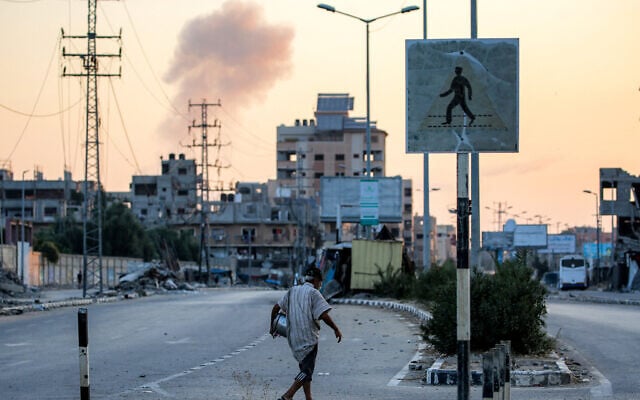
The Health Ministry also said that 10 people died as a result of starvation and malnutrition over the last 24 hours, including three children. It said at least 332 Palestinians have now died from malnutrition-related causes during the war, including 124 children.
The numbers have not been confirmed.
Israel denies targeting aid seekers but has acknowledged firing warning shots at those who are seen as endangering troops.
Former British prime minister Tony Blair told US President Donald Trump in a recent meeting that Gazans are seeking new leadership and hope the enclave can become developed in the same way as the United Arab Emirates, London’s The Times said in a Saturday report.
Trump presided over a policy meeting on Wednesday on the Gaza war, receiving input from Blair and former Trump Middle East envoy Jared Kushner. A White House official said they discussed all aspects of the Gaza issue, including escalating food aid deliveries, the hostage crisis, post-war plans and more.
According to The Times, Blair told Trump that it was still possible to advance a peace deal, with Palestinians united under a single government.

The report said Blair presented Trump with polling done by his Tony Blair Institute for Global Change in May, which found that the nation Gazans most admire as a potential model for their future was the UAE, at 27 percent, then Turkey at 15% and Singapore at 14%. No details were given in the report as to the methodology of the polling.
The polling reportedly showed that 35% of Gazans believe the Palestinian Authority should govern the Strip after the war, with 27% wishing for a transitional international coalition working with local authorities. The polling found 22% want a national unity government including both Hamas and Fatah, and just 4% believe Hamas should remain the sole power in the enclave.
The report said Blair is not an advocate of Gazans relocating or being relocated, but that his institute would not comment on whether the former UK premier would advocate for them to move temporarily during a potential reconstruction period.
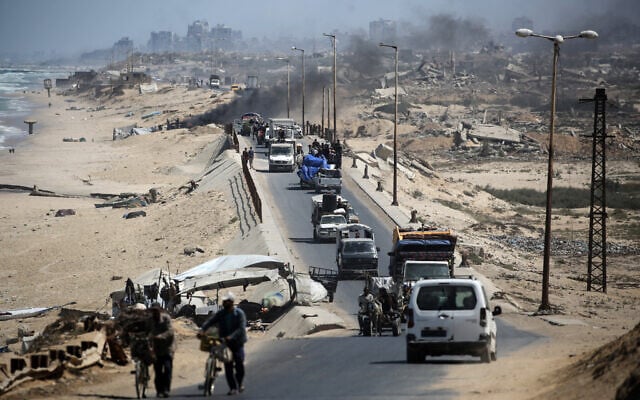
Shortly after taking the presidency earlier this year, Trump triggered global perplexity by saying he wanted US allies Egypt and Jordan to take in people from Gaza, suggesting the US “take over” Gaza and turn it into a “Middle East Riviera.”
Both countries rejected the idea, which drew global condemnation, saying it would amount to ethnic cleansing. Trump has since said, however, that no Gazans would be expelled. Israel has reportedly conducted talks with several countries to take in Gazans, but so far, no such plan has been announced.
For his part, Prime Minister Benjamin Netanyahu has said that Israel intends to take control of the entire Strip, then hand it over to non-Hamas, non-Palestinian Authority “Arab forces that will govern it properly, without threatening us, and giving the Gazans a good life.”
While Arab states have expressed willingness to assist in the post-war reconstruction of Gaza, they have long conditioned their involvement on the inclusion of the PA, viewing Ramallah’s role as critical to establishing a diplomatic horizon for a two-state solution, by having the same governing body in charge of both the West Bank and Gaza.
